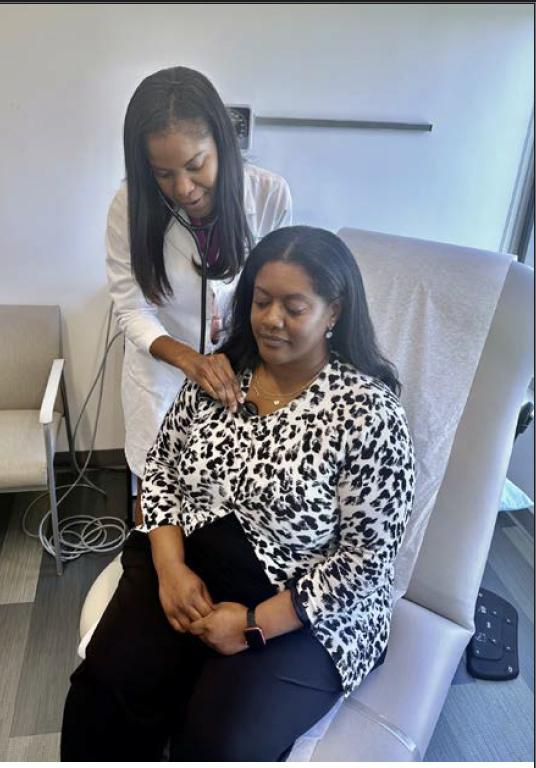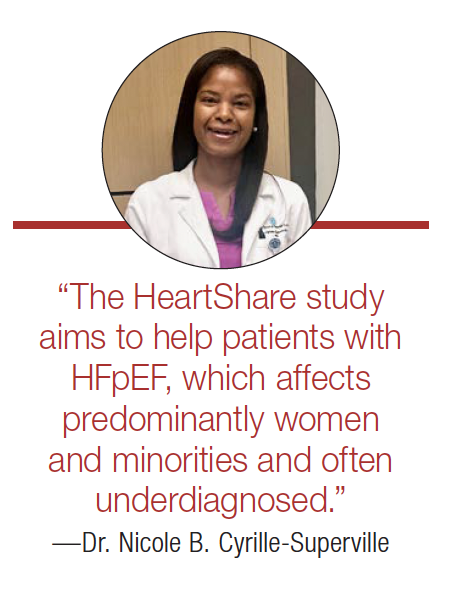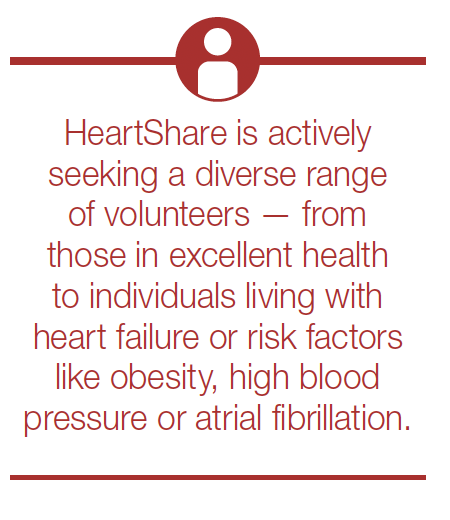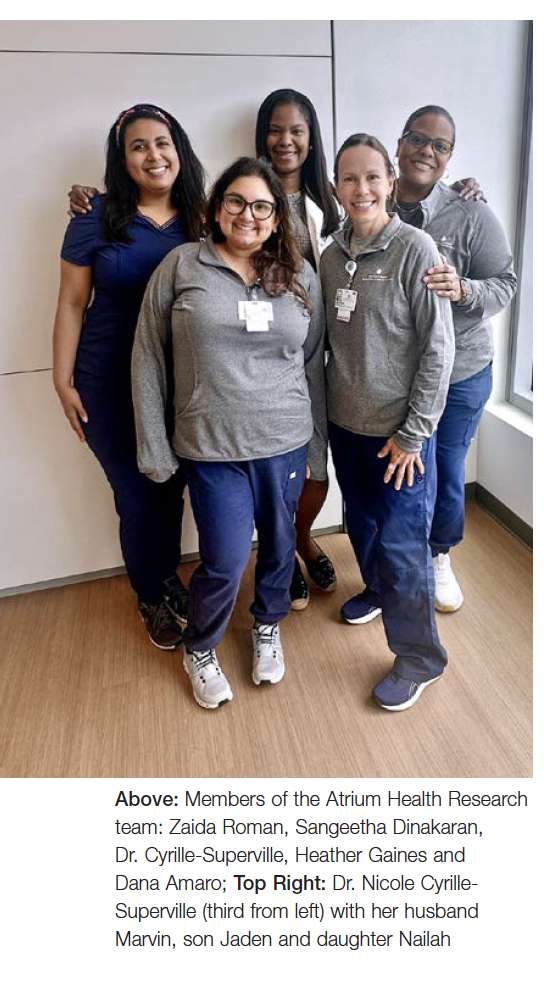
By Rosanny Crumpton
Atrium Health Sanger Heart and Vascular Institute in Charlotte is one of just seven sites in the country participating in the HeartShare study. Funded by the National Institutes of Health, this innovative study aims to uncover why some people develop heart failure while others do not. Leading the study in the Charlotte region is Dr. Nicole B. Cyrille-Superville, a dedicated heart failure cardiologist with a deep passion for advancing care.
Superville treats a wide spectrum of heart failure patients in the Queen City, including those with a condition known as Heart Failure preserved Ejection Fraction (HFpEF). In HFpEF, the heart’s pumping function remains normal, yet patients still suffer from symptoms like fatigue, fluid buildup and decreased exercise capacity — consistent with heart failure. According to the National Institutes of Health, HFpEF accounts for at least 50% of all heart failure diagnoses. While its symptoms mirror other forms of heart failure, its risk factors are quite distinct.
“Given the condition is not fully understood, there is ongoing research to determine the root causes and therapies that may benefit patients the most. I believe that research allows me to harness my clinical experience and help patients on a broader level,” explained Superville.
Eager to contribute to this national effort, Cyrille-Superville seized the opportunity to collaborate with Dr. Dalane Kitzman, a pioneer in HFpEF research, at Wake Forest located in Winston-Salem, North Carolina — another HeartShare site.
Originally from the island of Dominica, she came to the United States through a scholarship recruitment program. She earned her medical degree and completed her residency at Columbia University’s College of Physicians and Surgeons. Her cardiology fellowship was completed at Montefiore Medical Center in New York, where she also served as chief cardiology fellow. She later specialized in advanced heart failure and transplant at Massachusetts General Hospital – Harvard Medical School.
Cyrille-Superville was drawn to cardiology by its dynamic nature and the ability to offer innovative therapies to patients. During her fellowship, she experienced a pivotal moment while caring for a young mother in cardiogenic shock following childbirth. Using advanced heart pumps, the team stabilized the patient’s heart, allowing her to recover and return home with her newborn after several weeks in the hospital. This powerful and emotional experience solidified Cyrille-Superville’s decision to specialize in heart failure and transplant cardiology.
With humble beginnings and a strong support network guiding her journey, Cyrille-Superville is committed to giving back to the community through both care and research.
“The HeartShare study aims to help patients with HFpEF, which affects predominantly women and minorities and often underdiagnosed,” said Cyrille-Superville. These patients often have conditions such as hypertension, obesity and atrial fibrillation (irregular heart rhythm) and are on multiple medications for blood pressure, diuretics (water pill) or blood thinners,” she added. The study’s goal is to uncover different targets for treatment and better understand the root causes of HFpEF, she said.
HeartShare is actively seeking a diverse range of volunteers — from those in excellent health to individuals living with heart failure or risk factors like obesity, high blood pressure, or atrial fibrillation. Volunteers receive free, cutting-edge assessments, including echocardiograms, CT scans of the heart, lungs and abdomen, cardiac MRIs, exercise tests, physical exams, EKGs, pulmonary function tests and extensive blood work.
Participants will make two clinic visits on separate days from 8 a.m. to 2 p.m. for testing. Compensation ranges from $500 to $750, and transportation can be arranged if needed. Beyond the two visits, the time commitment is minimal. Participants will be contacted again after one year for a follow-up check-in.
“This is truly an opportunity to make a difference for future patients,” said Cyrille-Superville. The potential impact of the HeartShare study is significant. By identifying the different causes and subtypes of HFpEF, the research team aims to develop more accurate treatments and preventive strategies.
Through her leadership, compassion and scientific dedication, Cyrille-Superville embodies the role of a physician-researcher committed to equity and excellence. With the HeartShare study, she is not only advancing the field of cardiology — she’s helping to shape its future for generations to come.
To participate in the HeartShare study, visit: https://beinvolved.atriumhealth.org/studies/5/irb00094642





